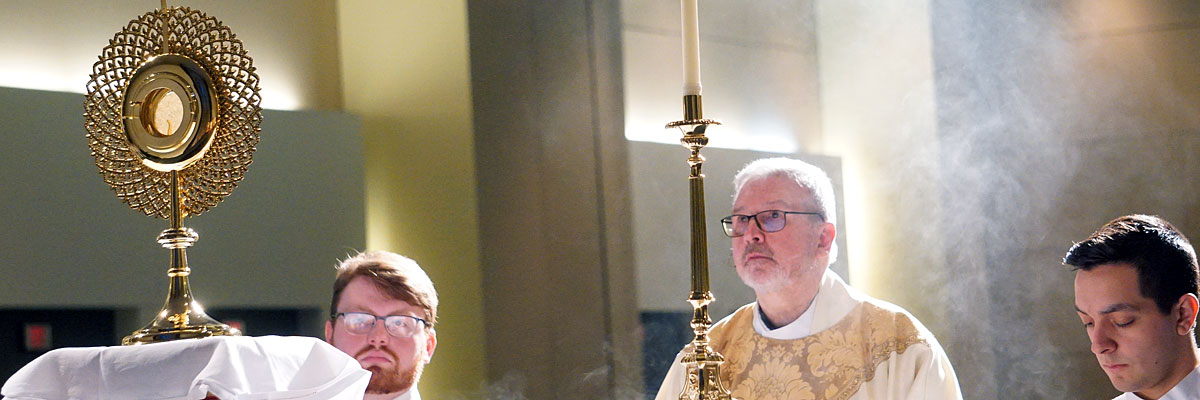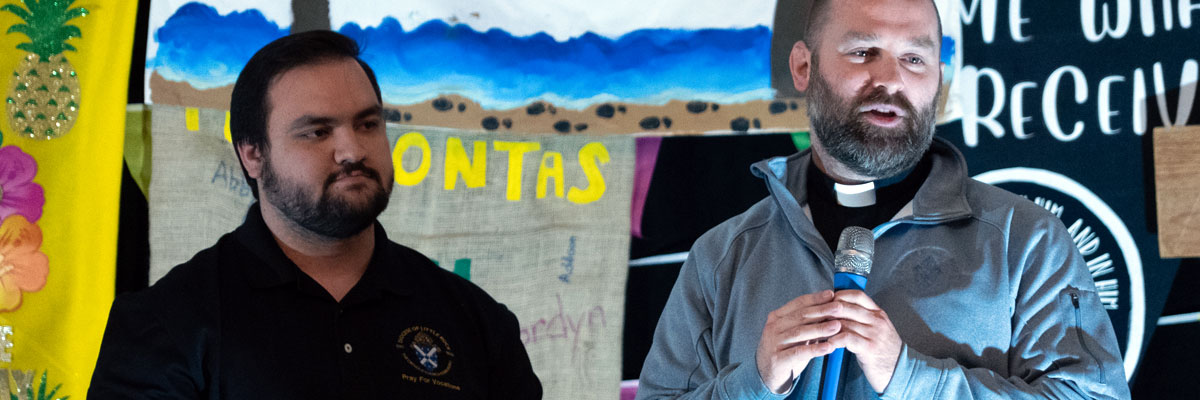Official Website of the
Catholic Diocese of Little Rock
Proclaiming Word of God to benefit listeners requires skillful delivery
Published: February 24, 2007
By Abbot Jerome Kodell, OSB
There is a difference between reading for others and reading for yourself. If you can read well for the public you can usually read well for yourself. The reverse is not true. You may be able to read with great comprehension privately and be a very poor public reader. The Second Vatican Council aroused hope for a new era of proclamation of the Word of God. We now had translations of the Bible in modern languages and expanded cycles of scriptural readings. We had excellent new liturgical aids, such as the new missalettes, containing the Mass texts in the vernacular. Missalettes were initially promoted for personal preparation for the liturgy and for use with responses and hymns, but the expectation was that they would not be needed during the readings at Mass because participants could now focus on the reader instead of the written text. In some places this dream has come true, but in many other places it hasn’t. Many listeners still find it necessary to read along privately while the text is being proclaimed in order to comprehend the message. This is so even when readers prepare well, understand the text, read loudly enough and make no errors in pronunciation. But still the readings are difficult to follow and understand. Why is this? A main cause is that the training most of us received in school, as excellent as it was, did not provide an introduction to the special skills required for public reading. Our training was for personal reading and comprehension, and a good reader was one who could read a text quickly and without mistakes. This is not to fault the schools, which fulfilled their mission by teaching personal reading and comprehension. Standardized tests measure good reading by speed and accuracy in understanding and interpreting a text. Even oral reading in school is primarily for training in correct pronunciation, not in delivering a meaning to a listener. The best public readers are skilled in three things: projection, timing and pausing. Projection means delivering the message to the remotest listener; timing and pausing mostly involve slowing down. Slowing down is very hard for us to accept in principle; because of our school training, we believe that the best readers are fast. Learning to slow down and to pause is very much against the grain. Empty moments are very important for the listener, but to the untrained reader they are pointless. Besides, with all eyes trained on you, pauses seem longer than they are. I know from personal experience how difficult it is to learn to read for the benefit of the listeners. In school I had been considered a good reader, and I received good scores on reading in the standardized tests. But when I entered the monastery I found that I was a terrible public reader, mainly because of my speed. I read like a machine gun. I had the talent, but not the skill. Because I did not know the difference between public reading and reading for myself, for a long time I could not understand the criticism. It has taken years for me to learn to slow down for the sake of the listeners. Proclaiming the Word of God in the Church is a magnificent calling. We thought it would be easy to fulfill that calling once we had good translations in our own language. For many of us, it takes more than that. Abbot Jerome Kodell, OSB, writes from Subiaco Abbey.









